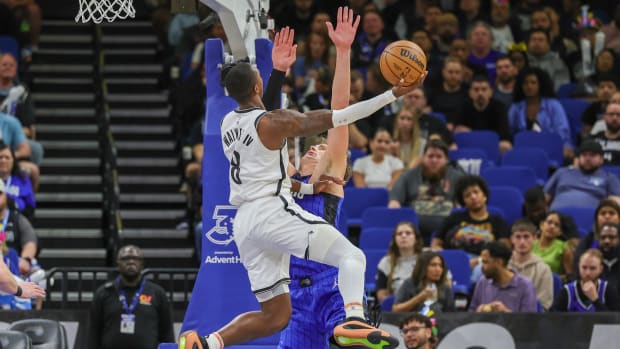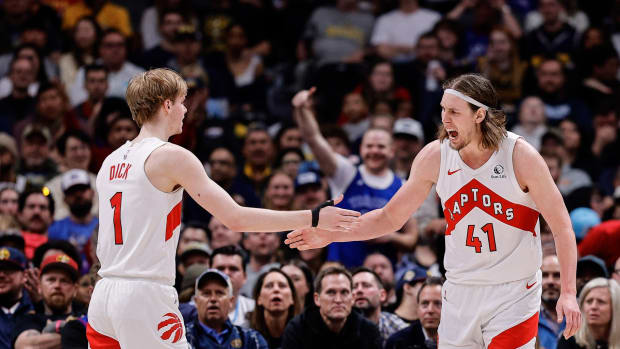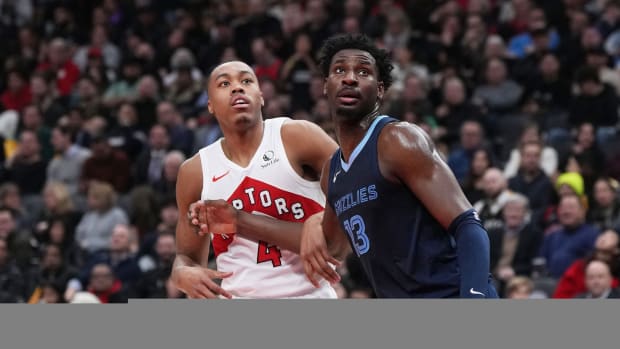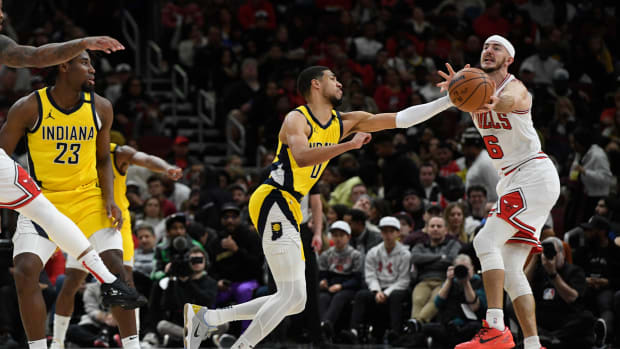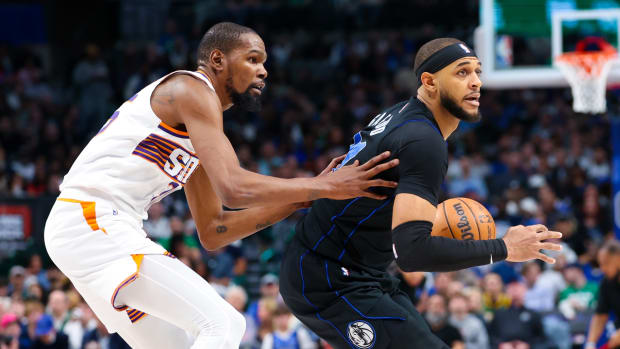NBA Trade Grades: Cavaliers Acquire Donovan Mitchell in Stunning Blockbuster
Donovan Mitchell is headed east…only not quite all the way to the coast. The Cavaliers acquired the three-time All-Star from the Jazz on Thursday, swooping in after Utah’s extended dalliance with the Knicks. Utah will receive three unprotected first-round picks, two pick swaps, Lauri Markkanen, Collin Sexton and Ochair Agbaji in the deal. Sexton, who was a restricted free agent, will sign a four-year, $72 million deal as part of the trade. Mitchell, who turns 26 on Sept. 7, averaged 25.9 points, 4.2 rebounds and 5.3 assists per game last season. Let’s grade the move for both sides.
Cavaliers: A
I love this move! The draft pick fetishists (like my colleague Michael Pina) will try to convince you this was a bad trade. Don’t let them. The Cavs acquired a top-25 player with three years left on his deal, surrendering the corresponding number of picks in today’s trade market to acquire such a talent. And as a bonus, they didn’t give up any of the All-Star caliber players on their roster. Mitchell is an explosive scorer, which is exactly the kind of player Cleveland lacked next to Darius Garland last season. The Cavs tried to supplement Garland with Caris LeVert at the deadline. This move should be a little bit more effective.
The fit isn’t perfect. Mitchell and Garland will struggle defensively. Yet on paper, they make more sense as a scoring duo than, say, Trae Young and Dejounte Murray. And as far as defense goes, you know what should help Mitchell? How about instead of one Rudy Gobert, Cleveland can offer two in Evan Mobley and Jarrett Allen. That frontcourt should help cover up for some of the backcourt’s mistakes, and both Garland and Mitchell are young enough to improve on that end of the floor.
Offensively, Mitchell’s pull-up three-point shooting and pick-and-roll prowess should be a boon to the Cavs’ attack. He also gives the team a much better staggering option for the second unit. And both his and Garland’s shooting ability should allow them to seamlessly play off each other as long as they both commit to spending less time with the ball in their hands.
You also have to consider the larger factors at play here. How else was Cleveland going to improve? The roster is ahead of schedule, which makes trying to add star talent in the draft difficult. The city is not a free-agent destination. Mitchell may not be a perfect star, but then again those players rarely become available. It’s a worthy gamble for a small-market team to put together this much young talent. And if you’re an ahead-of-schedule team that isn’t a free agency player, it’s probably a better bet to go all-in on a 26-year-old, three-level perimeter scorer than say … a 30-year-old center with a questionable offensive impact.
This trade may not make Cleveland a title contender, still it brings them much closer than any other realistic move (save for another LeBron decision). Could the Cavs make the conference finals? Some things may have to break right, some teams may have to knock each other out, but it doesn’t seem out of the realm of possibility. Ultimately, as far as home run swings go, this is a sensible one for Cleveland.
Jazz: B+
Hard to dispute what Utah did here. The Jazz want to execute a full-blown tank, and this move brings this significantly closer to the No. 1 overall pick. That probably has more value than future Cleveland picks, a strategy so many people love that we’ve yet to see consistently yield results. It’s a sad end for the Mitchell-Gobert era, though Utah could jumpstart a rebuild pretty quickly if it ends up with Victor Wembanyama. It will be years before we really know what this trade means for the Jazz. If there’s one person who has ended up on the right side of the draft pick gamble though, it’s Danny Ainge.
More NBA Coverage:

































